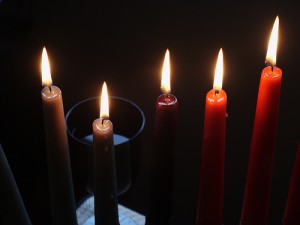Growth in Purpose
This is my reflection on Nia Purpose “To make our collective vocation the building and developing of our community in order to restore our people to their traditional greatness.”
While there is no one path, ritual creates a space for purpose to emerge and understanding to evolve. I think the rituals that we do can serve to build greater understanding of self and with each successive engagement expands the meaning of the ritual and principle. This year’s participation in rituals of writing daily on Kwanzaa served to enrich my understanding of each principle’s purpose and my own purpose.
![]()
I have been having conversations all Kwanzaa with adult brothers and sisters about celebrating it and there are a number of who respond, “I did when I was kid and it was cool then but ….” As someone who did not come up celebrating Kwanzaa, I’m from one of those Black families where members-only jackets were more common than dashikis, I have appreciated the adult understandings that have developed for me from the Nguzo Saba or Kawaida. While many enter the festival of Kwanzaa as a ritual where the Kinara needs to be there, corn and squash is around, and we should yell Harambee, this can be a part of Kwanzaa but the reflection on the principles as an individual and within a group are paramount. Through participation in the rituals associated with Kwanzaa (both reflection and actions) we have the opportunity to deepen our understanding of their purpose, our purpose, and often discover things that were beyond the original conception.
I recently was discussing Ujamaa with a sister online who was talking about explaining it to four year olds and how difficult it is. She had settled on an example of a lemonade stand. I added, “Maybe you can explain it as sharing. Tell them it’s about businesses that share with the community. Maybe point out businesses that share usually know your name or other folks in your community’s name.” While this was a rough and dirty way to explain it, I think it begins to get at some of the core dimensions of Cooperative Economics. Now I don’t think “businesses that share” is the limit of Ujamaa, instead as adults I think the purpose of the principle is to get us to think more deeply about the economic systems that we are involved in. Julius Nyerere enacted a system of Ujamaa which was a form of socialism in Tanzania. Imagine if in the same room we had young folks talking about sharing, adolescents discussing the validity of buying Black, and young adults and adults talking about the promise and pitfalls of differing economic systems and policies? Those types of discussions would invariably benefit our community. It seems with each step in one’s development, the purpose in the principle should be seen differently. Each year, we must bring the year’s gains, losses, and insights to the festival of harvest. While the ritual remains the same, the purpose does not change, it just grows as we do.
Filed under: Ancestors, Celebration, Economics, Food for Thought, kwanzaa, Public Policy, Youth




Pingback: Tweets that mention Growth in Purpose - Uptown Notes -- Topsy.com()
Pingback: Rochdale Village residents come together for Kwanzaa | The African Art Store()